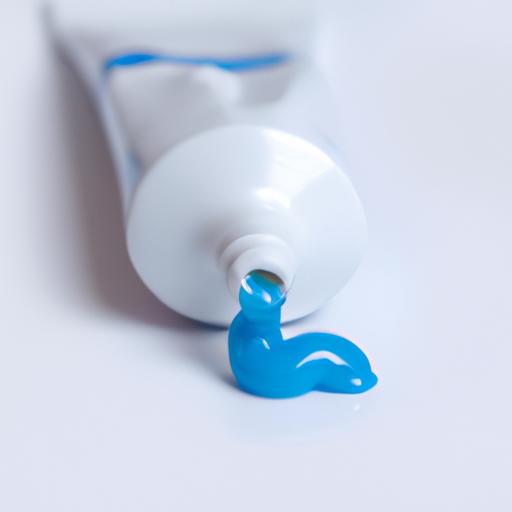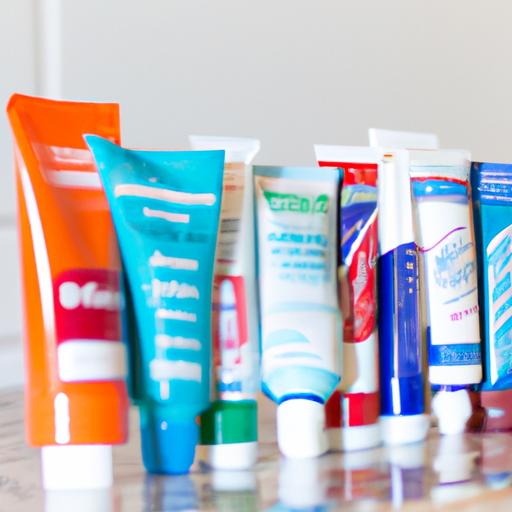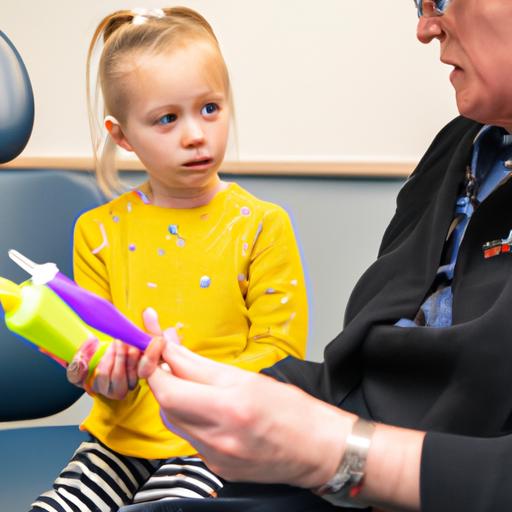Discover the benefits and risks of fluoride vs non-fluoride toothpaste for babies. Make an informed choice for your little one’s oral health.
Introduction
When it comes to caring for our little ones, every decision we make holds immense importance. From their diet to their hygiene, we strive to provide the best for them. One crucial aspect of their overall well-being is oral hygiene, and choosing the right toothpaste for our babies is a decision that shouldn’t be taken lightly. In this article, we will delve into the debate between fluoride and non-fluoride toothpaste for babies, exploring their benefits, risks, and helping you make an informed decision.

Fluoride toothpaste helps prevent cavities and strengthens tooth enamel.
Understanding Fluoride Toothpaste
What is Fluoride?
Fluoride is a naturally occurring mineral that has been proven to help prevent tooth decay. It works by strengthening the tooth enamel, making it more resistant to acid attacks from bacteria and sugars. This makes fluoride toothpaste an effective tool in combating cavities and maintaining good oral health.
Benefits of Fluoride Toothpaste for Babies
Fluoride toothpaste has been extensively researched and recommended by dental professionals worldwide. Its benefits for babies include:
-
Cavity Prevention: The primary advantage of fluoride toothpaste is its ability to prevent cavities. Studies have shown that fluoride reduces the risk of tooth decay by up to 50% in children.
-
Strengthening Tooth Enamel: Fluoride helps in the remineralization process, strengthening the enamel and repairing early signs of tooth decay.
-
Long-Term Dental Health: Using fluoride toothpaste from an early age can establish a solid foundation for lifelong oral health, reducing the risk of dental issues in the future.
Recommended Fluoride Concentration for Babies’ Toothpaste
While fluoride is beneficial, it is essential to use the right concentration for babies. The American Dental Association (ADA) recommends using a smear of fluoride toothpaste, roughly the size of a grain of rice, for children under three years old. For children aged three to six, a pea-sized amount of fluoride toothpaste is recommended.
Potential Concerns or Risks Associated with Fluoride Toothpaste
Although fluoride toothpaste is generally safe, there are some considerations to keep in mind:
-
Fluorosis: Excessive intake of fluoride during tooth development may lead to fluorosis, a condition that causes white spots or streaks on the teeth. However, this is primarily a concern when children consume excessive fluoride from multiple sources, such as water and toothpaste.
-
Swallowing: Babies and toddlers often struggle with spitting out toothpaste, increasing the risk of swallowing fluoride. However, using the recommended amount and monitoring toothbrushing can minimize this risk.

Non-fluoride toothpaste offers an alternative approach to oral care for babies.
Exploring Non-Fluoride Toothpaste
Alternative Toothpaste Options for Babies
For parents who prefer to avoid fluoride, there are non-fluoride toothpaste options available in the market. These toothpastes often use natural ingredients and gentle cleaning agents to provide oral care for babies.
Ingredients Commonly Found in Non-Fluoride Toothpaste
Non-fluoride toothpaste typically incorporates ingredients such as xylitol, a natural sweetener that helps combat bacteria, and calcium phosphate, which aids in remineralization. These ingredients provide an alternative approach to oral hygiene without the use of fluoride.
Effectiveness of Non-Fluoride Toothpaste in Preventing Cavities
Non-fluoride toothpaste can be effective in preventing cavities to some extent. However, it’s important to note that the evidence supporting their efficacy is limited compared to fluoride toothpaste. Regular brushing with non-fluoride toothpaste, along with a well-balanced diet and proper dental care, can contribute positively to oral health.
Considerations for Choosing Non-Fluoride Toothpaste for Babies
When considering non-fluoride toothpaste for your baby, here are a few factors to keep in mind:
-
Risk Assessment: Consult with your pediatrician or dentist to assess your baby’s risk of tooth decay. They can provide guidance on whether non-fluoride toothpaste is a suitable option based on your baby’s individual needs.
-
Diet and Oral Care: It’s important to remember that toothpaste is just one component of oral hygiene. A balanced diet, regular dental check-ups, and proper brushing techniques play vital roles in maintaining good oral health.

Consulting with professionals helps in making an informed decision.
Making the Right Choice for Your Baby
Discussing with a Pediatrician or Dentist
To make an informed decision about fluoride or non-fluoride toothpaste for your baby, it is crucial to consult with a pediatrician or dentist. They possess the expertise to evaluate your baby’s specific needs and provide personalized recommendations.
Factors to Consider When Choosing Between Fluoride and Non-Fluoride Toothpaste
When deciding between fluoride and non-fluoride toothpaste, consider the following factors:
-
Risk of Tooth Decay: If your baby is at a higher risk of tooth decay, fluoride toothpaste may be more beneficial.
-
Fluoride Exposure from Other Sources: Assess the fluoride content in your water supply, as excessive fluoride intake can be a concern. If your water is already fluoridated, non-fluoride toothpaste may be a suitable choice.
-
Individual Preferences: Consider your personal beliefs, preferences, and concerns when making this decision. It’s essential to choose a toothpaste that aligns with your values and provides the best care for your baby.
Personalized Dental Care for Babies
Remember, every child is unique, and their dental care needs may vary. Whether you choose fluoride or non-fluoride toothpaste, ensuring regular and proper brushing, along with routine dental visits, will contribute to your baby’s oral health.
Conclusion
Deciding on the right toothpaste for your baby is a significant responsibility. Both fluoride and non-fluoride toothpaste options have their merits and considerations. Fluoride toothpaste provides proven cavity-fighting benefits, while non-fluoride toothpaste offers an alternative approach for those seeking fluoride-free options. By consulting with healthcare professionals and considering your baby’s individual needs, you can confidently make an informed decision. Remember, regardless of the choice you make, consistent oral hygiene practices and regular dental care are key to fostering a lifetime of healthy smiles.
For more tips and guides on oral hygiene for your little ones, visit Best Water Flosser HQ.






